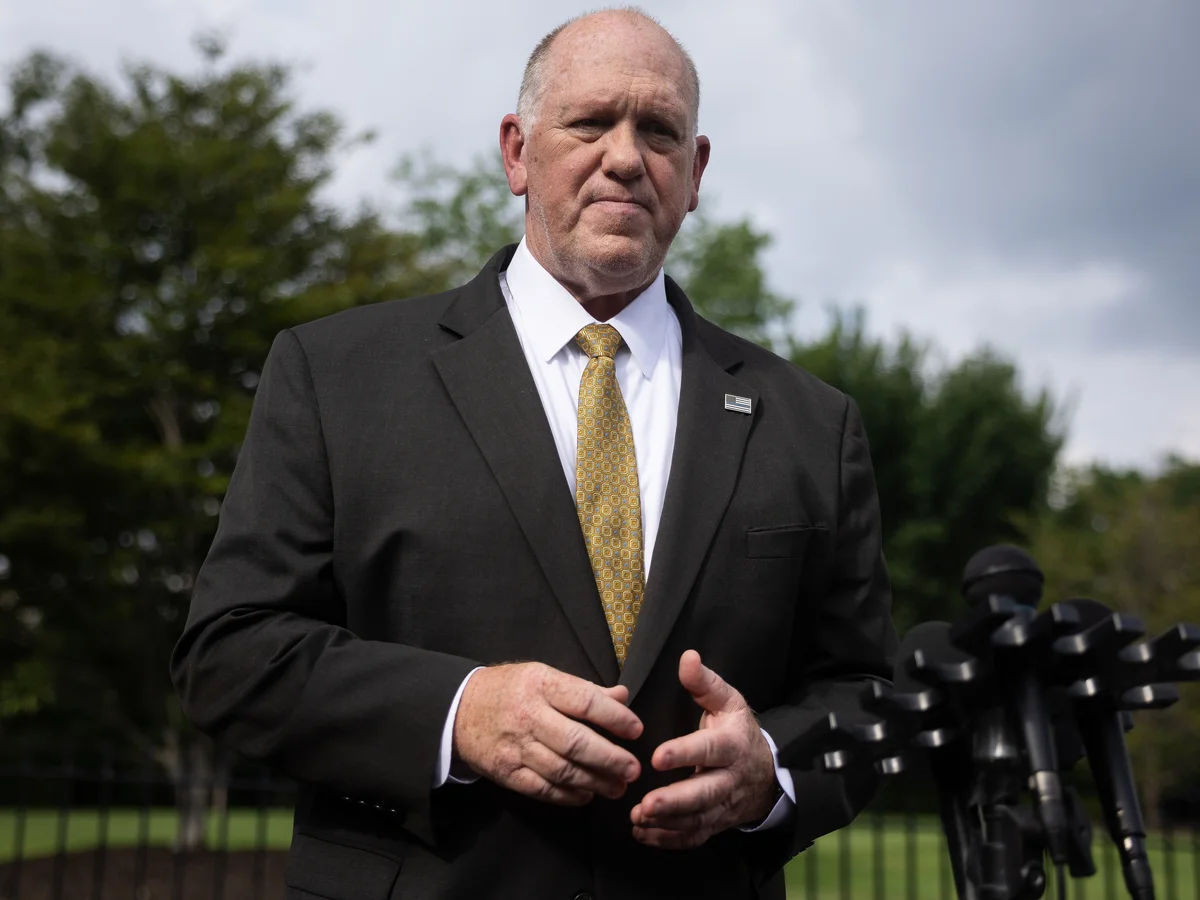Tom Homan, the US border czar, has said he does not know what happened to the eight men deported toSouth Sudanafter theTrump administrationresumed sending migrants to countries that are not their place of origin, known as third countries.
“They’re free as far as we’re concerned. They’re free, they’re no longer in our custody, they’re in Sudan,” Homan toldPoliticoon Friday. “Will they stay in Sudan? I don’t know.”
Administration officials said the men had been convicted of violent crimes in the US. Only one of the eightreportedlyhas a connection to South Sudan, which recently emerged from a civil war. The others include two people from Myanmar, two from Cuba, and one each from Vietnam, Laos and Mexico.
South Sudanese authorities said on Tuesday the menwere in custodyin Juba “under the care of the relevant authorities, who are screening them and ensuring their safety and wellbeing”.
The men were initially deported in May, but were held on a military base in Djibouti for weeks after a US court stopped their removal.
They were then transported to South Sudan after two USsupreme courtdecisions: one that broadly allowed for the administration to deport migrants to third countries to which they have no connection, and asecondthat weighed in directly on the case of the eight men.
“We make arrangements to make sure these countries are receiving these people and there’s opportunities for people, but I can’t tell you – if we removed somebody to Sudan they could stay there a week and leave, I don’t know,” Homan said.
He later added: “There’s like a 100 different endings to this – I just don’t know on every specific case what their status is.”
The administration has also controversially deported Venezuelan migrants to El Salvador, where they are held in a notorious prison. The administration has reportedly also approached countries such as Costa Rica, Panama and Rwanda about accepting migrants.
A deep dive into the policies, controversies and oddities surrounding the Trump administration
Homan has been called the intellectual “father” of a policy on migrants enacted in the first Trump administration to separate children from their families, according to an investigation in 2022 bythe Atlantic.
The best public interest journalism relies on first-hand accounts from people in the know.
If you have something to share on this subject you can contact us confidentially using the following methods.
The Guardian app has a tool to send tips about stories. Messages are end to end encrypted and concealed within the routine activity that every Guardian mobile app performs. This prevents an observer from knowing that you are communicating with us at all, let alone what is being said.
If you don't already have the Guardian app, download it (iOS/Android) and go to the menu. Select ‘Secure Messaging’.
SecureDrop, instant messengers, email, telephone and post
See our guide attheguardian.com/tipsfor alternative methods and the pros and cons of each.



 Education
Education 21 Jul, 2025
21 Jul, 2025 Elizabeth Ramirez
Elizabeth Ramirez